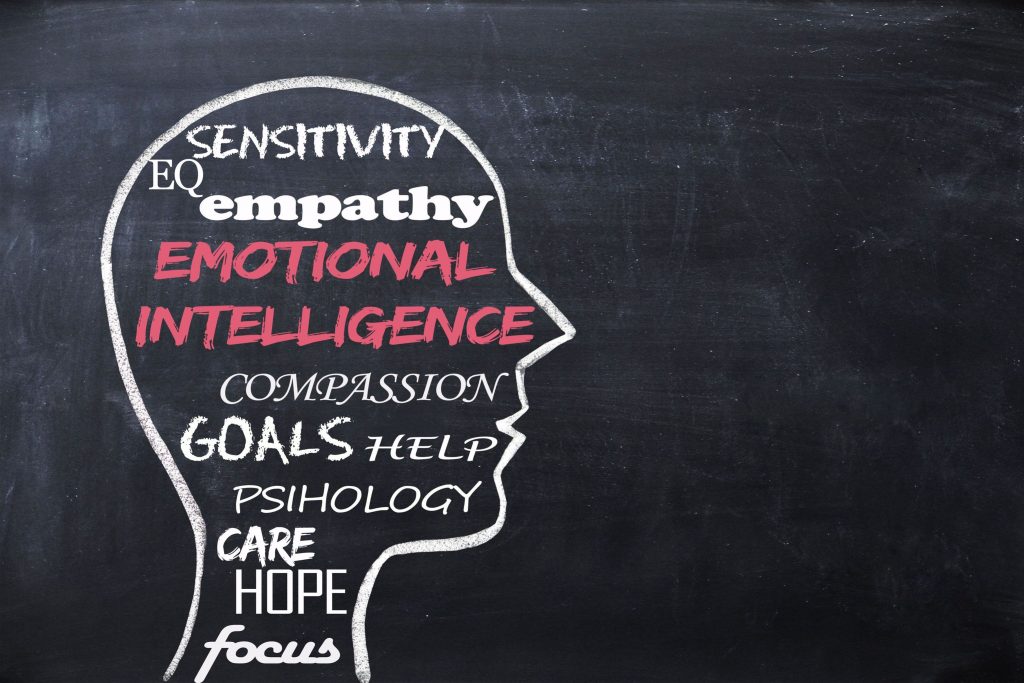How Emotionally Intelligent are you?

Emotional intelligence is described as being able to manage and handle emotions, as well as the ability of using and perceiving them as a guide for mindset and behaviour. EI is essential in building rapport and relationship with others and adjusting emotions and behaviour appropriately for various situations.
Popularised by psychologist Daniel Goleman and refined in the past years, having the right level of emotional intelligence can make or break your desire for success and drive you to become better individuals. But how do you know if you are emotionally intelligent? There are five main elements of emotional intelligence so you can review and assess how many of these traits you currently possess.
Self-Awareness
Self-awareness, as the name implies, is being aware of oneself and being able to identify the kind of moods that you are experiencing. Being mindful of what you are feeling and focusing on it in the moment will help you manage your next response or reaction. You are emotionally intelligent if you are able to recognise your emotions as you feel them, you know your strengths and weaknesses, and you are open to feedback from others on how you can further improve.
Self-Regulation
Self-regulation is being able to manage your emotions, and in turn being able to manage your response in different situations. Being emotionally intelligent, you are able to identify the triggers of your emotions and the reasons why they happen. Being able to regulate your emotions is beneficial as you will learn how to keep your reactions in check, especially in situations where there is conflict or disagreement. Self-regulation will be key to anger management. You know that you are emotionally intelligent if you are able to keep calm despite agitation or anxiety, you do not easily burst into anger, or you are able to handle frustration well.
Empathy
Some people are more insightful and are very perceptive of how others feel. Empathy is being able to identify with other people’s emotions or situation, which leads to deeper understanding of their perspective. Thus, empathy is considered as the most critical among interpersonal skills. You can do this by actively listening to them when they talk, recognise their points of view, and consider their ideas. You can also observe their body language, their tone of voice, and facial expressions to gain insight on their standpoint. You are emotionally intelligent if you are seen as a good listener, are perceptive of how others feel, and engage actively in a conversation.
Motivation
Being able to motivate oneself is a key emotional intelligence aspect. It is being able to boost motivation, overcome any setbacks and rise again with resilience. You are able to find your purpose and set your sights towards achieving them. You seek to hit your goals and find a way to motivate yourself, usually even without the motivation coming from others. You are able to focus on your goals – whether these are short or for the long-term, and to push through to progress, and take enjoyment in your work.
Social Skills
Having good social skills is important in interpersonal relationships, whether at work or in your personal life. Establishing rapport and placing trust on others is vital in maintaining good relationships. Additionally, conflicts are not avoided but are appropriately dealt with, and negotiations are discussed with convergence as top priority. Regardless of the type of culture, or country, it is universal that having harmonious and cordial relationships in the workplace would be essential for the team’s sustainable and long-lasting success.
Carrie Benedet is a seasoned leadership coach and an emotional intelligence specialist and can design a program for you for emotional intelligence improvements in the workplace. Send her a message today.




